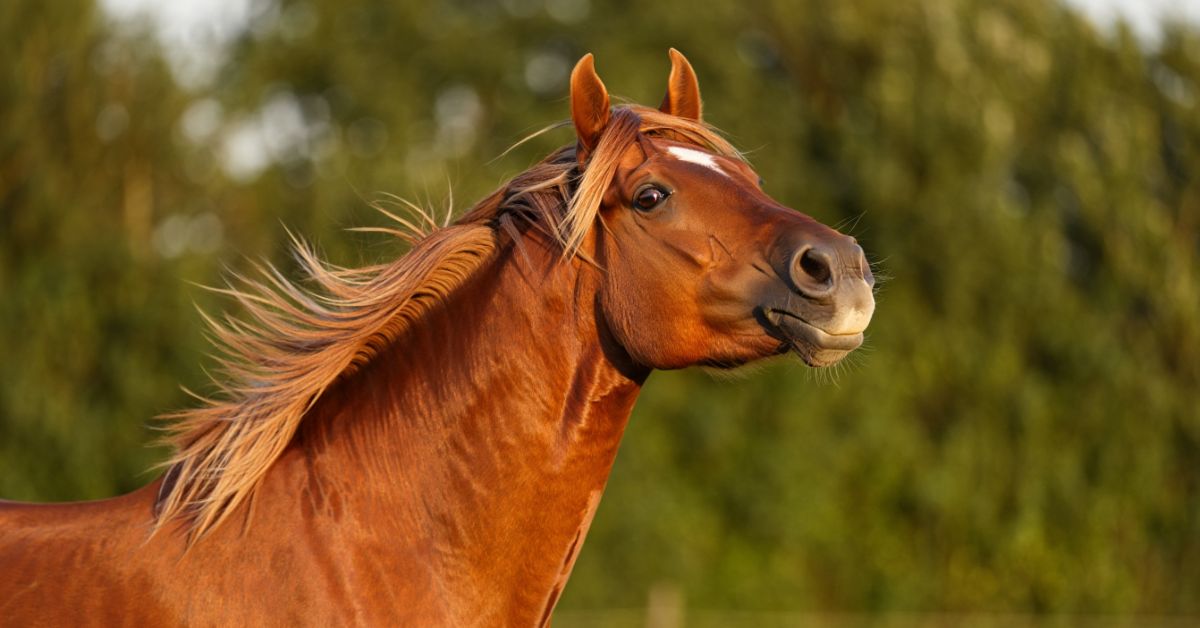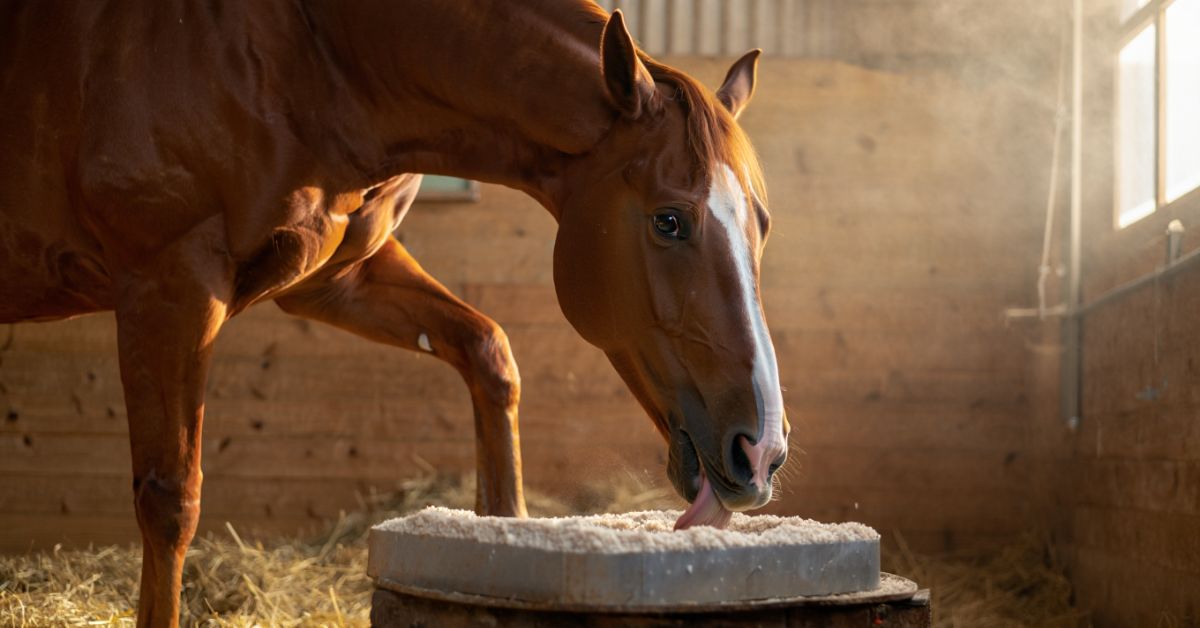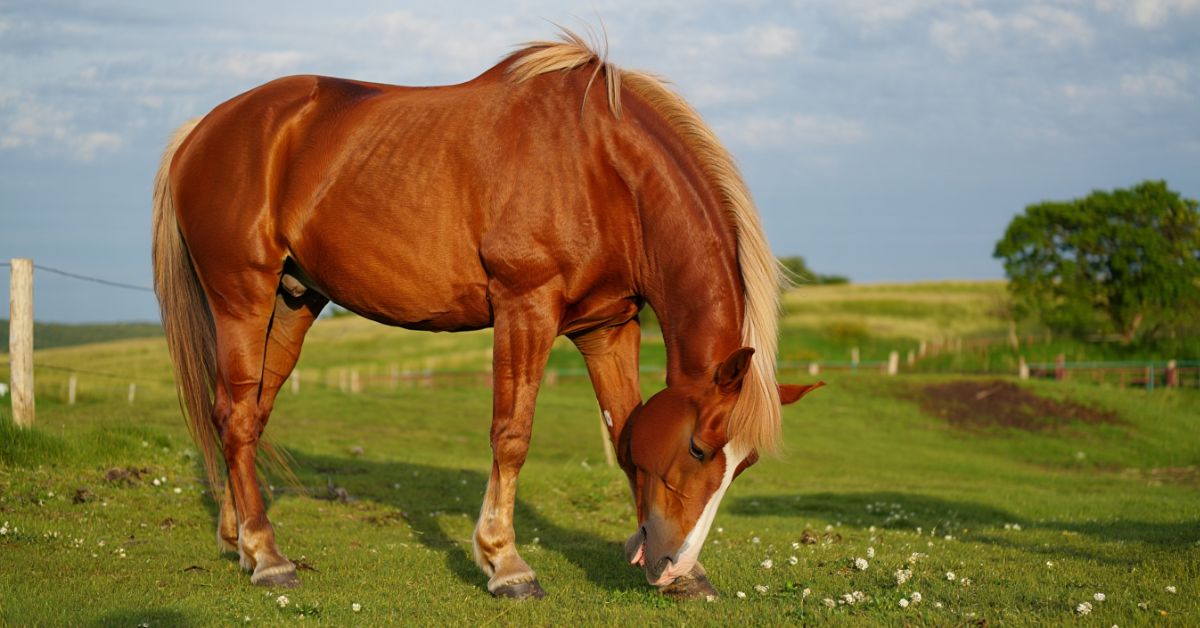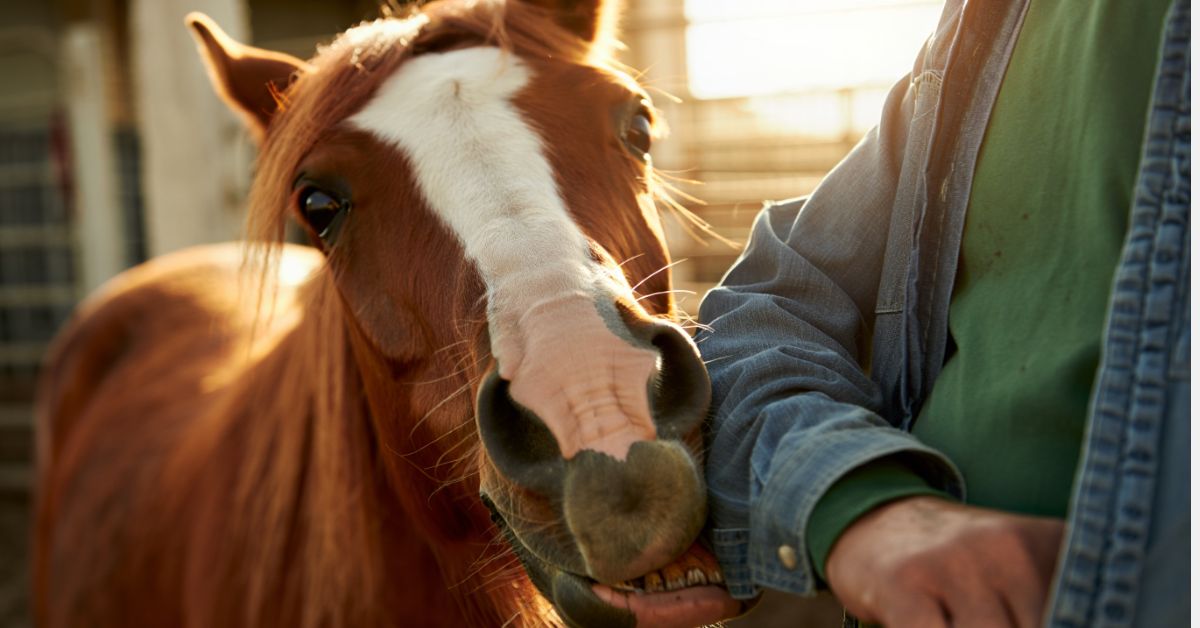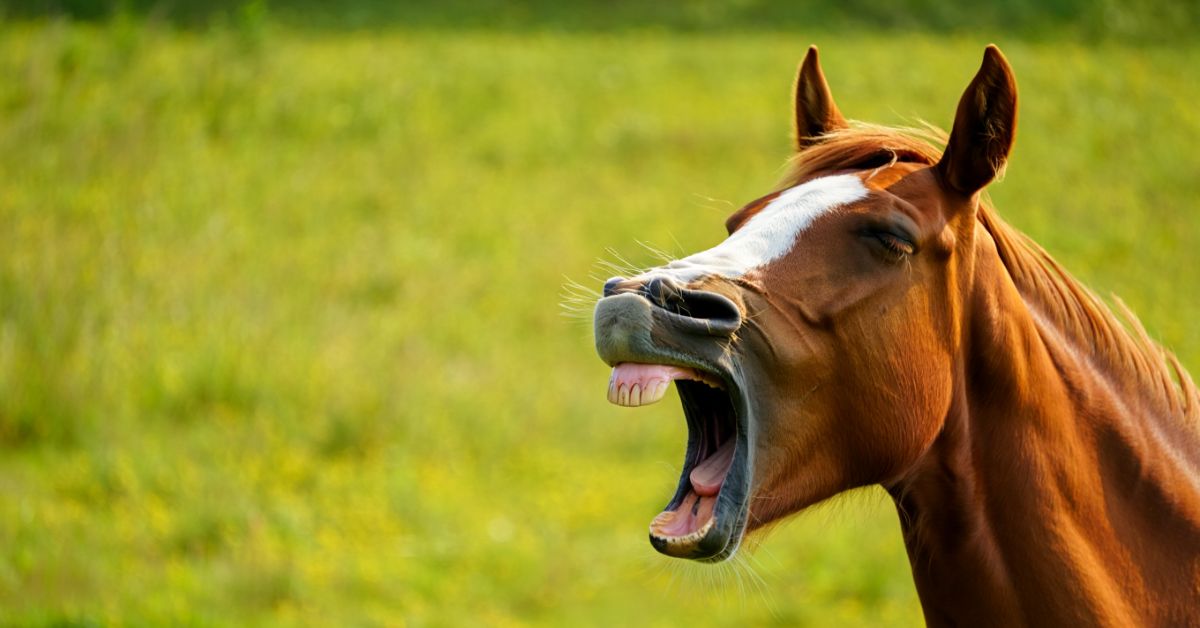
Why Do Horses Yawn? Understanding Equine Behavior and What It Means
Why do horses yawn? It's a question that fascinates every horse enthusiast who's spent time around these magnificent creatures. While we often associate yawning with tiredness in humans, equine behavior tells a much more complex story. Horses yawn for multiple reasons—from stress relief and relaxation to jaw tension release and even social communication. Understanding this natural ethology helps you become a better horse owner and deepens your connection with your four-legged friend. Whether you witness your horse yawning after a training session, during grooming, or in the pasture with other horses, each yawn carries meaning. This fascinating biological purpose reveals insights into your horse's emotional state, physical comfort, and overall well-being. Let's dive deep into the science and observation behind this common yet mysterious behavior! 🐴
The Science Behind Horse Yawning: More Than Just Tiredness
When you see your horse open its mouth wide in that characteristic yawn, something remarkable is happening beneath the surface. The physiological mechanism of yawning involves much more than simple fatigue.
Brain Cooling and Thermoregulation
One of the most compelling theories involves thermoregulation—essentially, brain cooling. Research published in Physiology & Behavior in 2014 suggests that yawning helps regulate brain temperature in mammals. When your horse yawns, the jaw stretching increases blood flow to the skull, while the deep inhalation brings cooler air through the nasal passages. This process can lower brain temperature by as much as 0.2 degrees Celsius.
Think of it like opening a window in an overheated room—your horse's body uses this natural cooling system to maintain optimal neurological function. This is particularly relevant during hot weather or after intense physical activity when your horse's body temperature rises.
The Parasympathetic Response and Stress Relief
Why do horses yawn during or after stressful situations? The answer lies in the parasympathetic response. When your horse experiences anxiety or tension, yawning can activate the parasympathetic nervous system, which promotes relaxation and helps return the body to a calm state.
Dr. Temple Grandin, renowned animal behaviorist, once noted: "Animals have sensory-based thinking, and yawning is one way they reset their nervous system after stress."
This vagal tone activation releases tension and helps your horse transition from a state of alertness to one of calm. You might notice this particularly after:
-
Veterinary examinations
-
Training sessions with new exercises
-
Trailer loading or transportation
-
Introduction to unfamiliar environments
-
Interactions with dominant herd members
The endorphin release associated with yawning also contributes to pain relief and overall comfort, making it a natural coping mechanism for horses dealing with minor discomfort or emotional stress.
Understanding Yawning as a Communication Behavior
Your horse isn't just yawning for physical reasons—it's also a form of communication behavior within the herd and with you. This aspect of equine behavior reveals the sophisticated social intelligence horses possess.
Social Cues Among Conspecifics
Have you ever noticed contagious yawning in your barn? When one horse yawns, others nearby might follow suit. While the phenomenon isn't as pronounced as in primates, observational studies suggest horses do pick up on social cues from their herd mates.
This conspecifics interaction serves multiple purposes. In some cases, simultaneous yawning might indicate that multiple horses are experiencing similar states—perhaps transitioning to rest time together, or collectively releasing tension after a shared stressful experience like a thunderstorm passing overhead.
Dominance and Hierarchical Communication
Interestingly, yawning can also play a role in dominance display within horse social structures. Subordinate horses sometimes yawn more frequently in the presence of dominant individuals. This isn't necessarily submission—it's more like a stress signal indicating the lower-ranking horse is processing the social pressure.
According to equine behaviorist Marthe Kiley-Worthington: "The horse is a master of subtle communication, and what we might dismiss as a simple yawn often carries layers of social meaning."
Post-Feeding Behavior and Digestive Connections
Why do horses yawn immediately after eating? This post-feeding behavior connects directly to their digestive process and overall physical comfort.
The Jaw Muscle Connection
Horses spend considerable time chewing—between 3 to 5 hours daily in natural grazing conditions. This constant jaw work creates muscle tension that needs release. Stretching jaw muscles through yawning provides relief from this accumulated tension, similar to how you might stretch your arms after typing at a computer for hours.
The temporomandibular joint (TMJ) in horses experiences significant pressure during chewing, especially when eating hay or hard feeds. A good yawn extends this joint fully, releasing built-up tension and promoting healthy joint function. This is particularly important because jaw tension can lead to:
-
Resistance to bit contact during riding
-
Headshaking behavior
-
Reduced feed intake
-
General discomfort affecting performance
Digestive Comfort and Potential Concerns
While occasional yawning after meals is perfectly normal, excessive yawning combined with other symptoms might indicate digestive distress. Though rare, frequent yawning can sometimes be an early colic symptom when accompanied by:
-
Pawing at the ground
-
Looking at flanks
-
Reduced appetite
-
Changes in manure consistency
The Sleep-Wake Transition and Arousal Levels
One of the most common times you'll observe your horse yawning is during the sleep-wake transition. This behavior bridges different states of consciousness and helps regulate arousal levels throughout the day.
Drowsiness and Rest Indicators
Unlike humans who typically sleep in one long block, horses are polyphasic sleepers—they take multiple short rest periods throughout a 24-hour cycle. They need only about 2-3 hours of deep REM sleep daily, often taken in 20-30 minute increments.
Why do horses yawn when waking from these rest periods? The yawn serves as a physical and mental reset button. As your horse transitions from drowsiness to alertness, yawning helps:
-
Increase blood oxygen levels through deep inhalation
-
Stimulate circulation after stillness
-
Activate muscle groups needed for movement
-
Sharpen mental focus for environmental awareness
In a 2018 study published in Applied Animal Behaviour Science, researchers found that horses yawned an average of 3-5 times per day, with peaks occurring during morning wake-up periods and late afternoon transition times.
Rest and Recovery Signals
Yawning also signals that your horse feels safe enough to enter rest and recovery mode. In the wild, horses only fully relax when they trust their environment and herd mates to watch for danger. When your horse yawns in your presence, it's actually a compliment—it means they feel secure with you.
This welfare indicator tells you that your horse management practices are working. Horses experiencing chronic stress, inadequate rest areas, or constant environmental threats yawn less frequently because they can't achieve the relaxed state necessary for this behavior.
Environmental and Emotional Factors Affecting Yawning
The frequency and context of your horse's yawning can reveal important information about their emotional state and living conditions. Understanding these factors helps you optimize environmental enrichment and overall care.
Boredom and Stereotypic Behavior
Horses are intelligent, curious animals that need mental stimulation. When confined to stalls for extended periods with limited interaction or activity, some horses develop stereotypic behavior—repetitive, purposeless actions like cribbing, weaving, or excessive yawning.
Boredom manifests differently in each horse, but increased yawning combined with listlessness or other repetitive behaviors suggests your horse needs more:
-
Turnout time with other horses
-
Varied training activities
-
Environmental complexity (toys, varied terrain)
-
Social interaction
-
Natural grazing opportunities
Anxiety Relief Through Natural Behavior
Modern horse keeping often differs dramatically from natural conditions. In the wild, horses travel 10-20 miles daily, graze continuously, and maintain constant social contact with their herd. Domesticated horses face stressors including:
-
Isolation from herd mates
-
Restricted movement
-
Irregular feeding schedules
-
Inconsistent human interaction
-
Limited sensory stimulation
Yawning serves as a natural anxiety relief mechanism, helping horses cope with these modern challenges. The respiratory function aspect of yawning—that deep breath and full exhalation—activates the body's natural calming response.
Olfactory Stimulation and Sensory Processing
Here's a fascinating detail: when horses yawn, they also enhance olfactory stimulation. The wide mouth opening and deep breath draw more air across their vomeronasal organ (Jacobson's organ), which processes chemical signals and pheromones.
This sensory boost helps horses gather information about their environment, other horses, and even your emotional state. It's part of their sophisticated communication system that makes the horse-human bond so special.
Creating Optimal Conditions
Supporting healthy equine behavior means understanding what your horse needs physically and emotionally. Consider these factors:
Physical Environment:
-
Adequate space for movement and expression
-
Safe, comfortable resting areas
-
Protection from extreme weather
-
Access to fresh water and appropriate forage
Social Environment:
-
Regular contact with other horses
-
Consistent, positive human interaction
-
Predictable routines that provide security
-
Opportunities for natural behaviors
Mental Stimulation:
-
Varied training exercises
-
Trail riding or arena work variety
-
Ground work and liberty play
-
Puzzle feeders or enrichment toys
Frequently Asked Questions on Horse Yawning
How often should horses yawn normally?
Healthy horses typically yawn 3-5 times daily, though this varies by individual. Excessive yawning (more than 10-15 times daily) or complete absence of yawning might indicate issues worth discussing with your veterinarian. The biological purpose of yawning means it should occur naturally throughout the day, particularly during transitions between activity levels.
Is yawning always a sign of stress in horses?
No! While yawning can indicate stress relief, it's not exclusively a stress signal. Horses yawn during relaxation, after meals, during sleep-wake transitions, and as part of normal communication behavior. Context matters—a horse yawning during a massage or after a satisfying roll is showing contentment, while one yawning repeatedly during training might be processing pressure. The key is observing the whole picture of your horse's body language and circumstances.
Can horses yawn due to dental problems?
Yes, jaw tension from dental issues can increase yawning frequency. Horses with sharp points, uneven wear, or TMJ problems may yawn more as they try to relieve discomfort. If you notice increased yawning combined with dropping feed, resistance to the bit, or facial sensitivity, schedule a dental exam. Regular dental care (annually for most horses, more frequently for seniors) helps prevent these issues.
Do foals yawn more than adult horses?
Foals and young horses often yawn more frequently than adults. This relates to their rapid neurological development, frequent sleep cycles, and constant learning experiences. Young horses process enormous amounts of new information daily, and yawning helps them regulate arousal levels and consolidate learning. It's perfectly normal to see foals yawning repeatedly during training sessions or after playful interactions.
What's the connection between headshaking syndrome and yawning?
Headshaking syndrome—a frustrating condition where horses shake their heads involuntarily—may share some neurological pathways with yawning. Both involve trigeminal nerve function and can relate to facial discomfort or neurological irritation. However, yawning itself doesn't cause headshaking. If your horse exhibits both behaviors excessively, consult your vet to rule out underlying issues like allergies, nerve irritation, or photosensitivity.
Conclusion: Embrace the Full Spectrum of Equine Behavior
Understanding why horses yawn opens a window into their complex inner world. From thermoregulation and stress signals to communication behavior and sleep-wake transitions, yawning serves multiple vital functions in your horse's daily life.
As you spend time with your horse, pay attention to when and how they yawn. These moments offer valuable insights into their physical comfort, emotional state, and trust in you. Each yawn is a piece of the larger puzzle of equine behavior and natural ethology that makes horse ownership such a rewarding journey.
Whether you're a competitive rider, casual trail enthusiast, or simply someone who cherishes the horse-human connection, deepening your understanding of these behaviors strengthens your bond. Express your style as a dedicated equestrian and celebrate this passion every day—both at the barn and at home with meaningful pieces that reflect your love for horses! 🐴💕
Remember: A yawning horse is a horse that feels comfortable enough to show you their natural behaviors. That trust is the foundation of every great partnership between human and horse.
